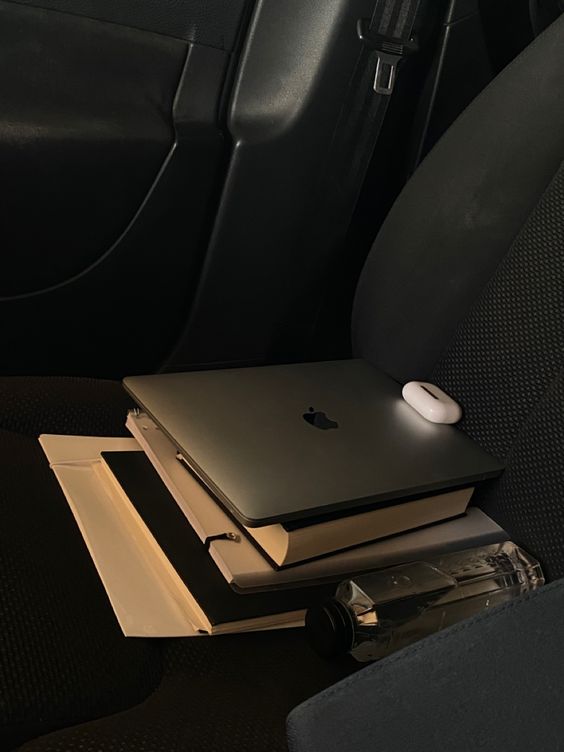How to Run a Small Business Accounting
Good accounting practices are essential for any small business to ensure financial health, compliance, and strategic growth. Understanding how to run a small business accounting helps owners track cash flow, manage expenses, prepare for tax obligations, and make informed business decisions. This guide covers the basics of small business accounting, including setting up an accounting system, tracking expenses, managing taxes, and tips for financial organization.
Why Small Business Accounting is Important
Running accurate and organized accounting provides several benefits for small businesses:
- Improved Cash Flow Management: Tracking income and expenses allows you to understand cash flow, anticipate shortfalls, and ensure you have enough funds to operate smoothly.
- Better Financial Decision-Making: Accurate records provide insights into profitability and growth opportunities.
- Simplified Tax Preparation: With organized accounting, you can easily file taxes and avoid last-minute stress.
- Increased Transparency and Accountability: Good accounting practices promote accountability and trust among investors, partners, and employees.
How to Run Small Business Accounting: Guide
1. Choose an Accounting Method
The first step in how to run a small business accounting is deciding which accounting method to use for your venture. Generally, small businesses choose between two main accounting methods:
Cash Basis Accounting
- Description: Income and expenses are recorded only when cash is received or paid.
- Ideal For: Small businesses or sole proprietors without extensive inventory.
Accrual Basis Accounting
- Description: Income and expenses are recorded when they are earned or incurred, regardless of when cash changes hands.
- Ideal For: Growing businesses or those with complex transactions or inventory.
Pro Tip: Cash basis accounting is simpler, but accrual accounting provides a more accurate picture of your financial health.
2. Set Up an Accounting System
The next step in how to run a small business accounting is setting up a system. Using accounting software can simplify tracking your finances, generating reports, and managing payroll. Popular software options include QuickBooks, Xero, and Wave, each offering different features tailored to small businesses.
Key Features to Look For:
- Income and Expense Tracking: Record sales, purchases, and expenses.
- Bank Reconciliation: Match transactions with bank statements to identify discrepancies.
- Invoicing: Create, send, and track customer invoices.
- Financial Reporting: Generate income statements, balance sheets, and cash flow statements.
Pro Tip: Choose software that integrates with your bank account, payment systems, and other business tools to streamline processes.
3. Open a Separate Business Bank Account
Keeping business and personal finances separate is crucial for accurate record-keeping and tax reporting. Opening a dedicated business bank account helps you track business expenses, calculate profits, and maintain clean records.
Benefits of a Business Bank Account:
- Simplified Accounting: With a separate account, you can easily track business-related transactions.
- Improved Tax Reporting: Clearly distinguish between personal and business expenses, reducing errors.
- Enhanced Professionalism: A dedicated business account establishes credibility with customers and partners.
Pro Tip: Many banks offer business accounts tailored to small businesses with features like low fees, integrated business tools, and easy online access. Learn how to run a small business accounting with different banks accounts.
4. Track Income and Expenses
Monitoring your income and expenses regularly is essential for maintaining financial control and understanding how to run a small business accounting. Organize your expenses into categories, such as rent, utilities, inventory, and payroll, to get a clear view of where money is coming from and going.
Tips for Tracking Income and Expenses:
- Use Accounting Software: Automated tools like QuickBooks or FreshBooks make tracking easy and reduce human error.
- Keep Receipts and Documentation: Maintain digital copies of receipts and invoices for accurate records.
- Categorize Expenses: Break down expenses into categories that align with your business activities to simplify tracking and reporting.
Pro Tip: Review income and expenses monthly to spot trends, avoid overspending, and make adjustments as needed.
5. Manage Accounts Receivable and Payable
Maintaining accurate records of what your business owes and is owed is critical to cash flow management. This involves tracking both accounts receivable (money owed to you) and accounts payable (bills you owe to suppliers).
Tips for Accounts Receivable:
- Send Invoices Promptly: Issue invoices immediately after providing goods or services to ensure timely payments.
- Follow Up on Unpaid Invoices: Use automated reminders or follow-up emails for overdue payments.
- Offer Incentives for Early Payments: Encourage customers to pay promptly by offering discounts for early payments.
Tips for Accounts Payable:
- Set Payment Alerts: Avoid late fees by setting reminders for bills and recurring expenses.
- Negotiate Payment Terms: Request extended payment terms from suppliers if needed to improve cash flow.
- Track Due Dates: Use accounting software to monitor due dates and avoid missed payments.
Pro Tip: Managing accounts receivable and payable helps maintain a healthy cash flow and builds strong relationships with suppliers and customers.
6. Prepare for Taxes
Keeping accurate records throughout the year makes tax preparation easier. Ensure compliance by understanding your business’s tax obligations and maintaining documentation for all deductible expenses. This will make learning and applying how to run a small business accounting much easier.
Steps for Tax Preparation:
- Track Deductible Expenses: Common business deductions include rent, utilities, equipment, advertising, and travel expenses.
- Estimate Quarterly Taxes: Many small businesses are required to pay estimated quarterly taxes to avoid penalties.
- File Business Taxes on Time: Familiarize yourself with deadlines for federal, state, and local taxes, as well as payroll taxes if you have employees.
Pro Tip: Consider hiring an accountant or tax professional to help you navigate tax regulations and maximize deductions.
7. Generate Financial Reports
Regular financial reporting helps you analyze your business performance and make informed decisions. Common financial reports include:
- Income Statement: Shows revenue, expenses, and profits over a period.
- Balance Sheet: Lists assets, liabilities, and equity, providing a snapshot of your financial health.
- Cash Flow Statement: Tracks cash inflows and outflows, showing how much cash your business generates and uses.
Pro Tip: Review financial reports monthly to monitor trends and make data-driven business decisions.
8. Monitor Cash Flow Regularly
Cash flow is essential to keeping your business running smoothly. Positive cash flow ensures you have enough funds to cover expenses, reinvest in your business, and grow.
Tips for Cash Flow Management:
- Create a Cash Flow Forecast: Estimate future cash inflows and outflows to anticipate shortfalls.
- Maintain a Cash Reserve: Set aside funds to cover unexpected expenses or slow periods.
- Reduce Expenses: Look for ways to cut costs, such as negotiating better terms with suppliers or finding more affordable services.
Pro Tip: Regularly monitor your cash flow to ensure you’re prepared for seasonal fluctuations or slow business periods.
9. Seek Professional Help
While small business accounting can be managed independently, many owners benefit from working with a professional. Accountants and bookkeepers can provide valuable insights, help with tax planning, and ensure compliance.
Reasons to Work with a Professional:
- Tax Expertise: An accountant can help you understand tax obligations, find deductions, and avoid penalties.
- Financial Planning: A professional can provide insights into budgeting, cash flow management, and growth strategies.
- Saves Time: Outsourcing accounting allows you to focus on running and growing your business.
Pro Tip: If hiring a full-time accountant isn’t feasible, consider a part-time bookkeeper or using accounting services on an as-needed basis. This will also help you in understanding how to run a small business accounting effectively.
Conclusion
Knowing how to run small business accounting effectively is essential for ensuring financial stability and growth. By choosing an appropriate accounting method, using reliable software, tracking income and expenses, and preparing for taxes, you can set a solid financial foundation for your business. Regularly reviewing financial reports, managing cash flow, and seeking professional guidance when needed will further ensure your business thrives. Taking these steps allows you to focus on your goals while making informed decisions for a profitable future.


















Post Comment